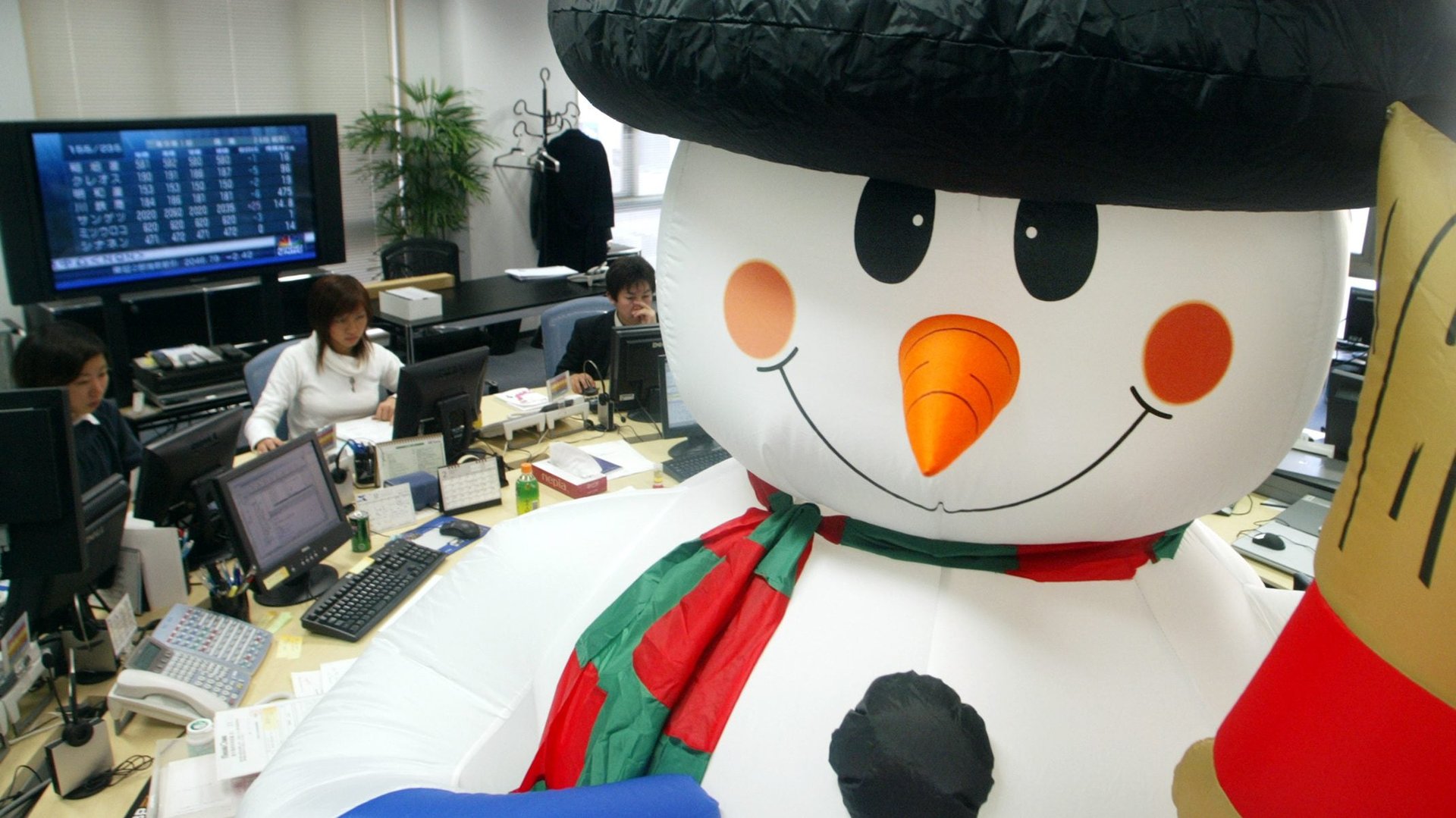Asking your coworkers about their holidays could be hurting them
Growing up, I spent many Christmas holidays cooking for two. It was always a great time, me and my grandmother and the Golden Girls. Returning to work in January, however, was, and still is, somewhat painful. Besides coming back to an inbox full of requests and recurring meeting invites for the entire year, I (and many others) am faced with repeating the same conversation with multiple co-workers: “so, how were your holidays?”


Growing up, I spent many Christmas holidays cooking for two. It was always a great time, me and my grandmother and the Golden Girls. Returning to work in January, however, was, and still is, somewhat painful. Besides coming back to an inbox full of requests and recurring meeting invites for the entire year, I (and many others) am faced with repeating the same conversation with multiple co-workers: “so, how were your holidays?”
Personally, the holidays are a hard time. Like several other friends, I’ve lost loved ones during this season and spent more than my fair share of December days in hospital waiting rooms.
Naturally, “how were your holidays?” is NOT a wrong question to ask, and people should not feel bad inquiring about their colleague’s personal lives. But regardless of the stress that comes with returning to work after a routine-altering break, this question is laden with an assumption that the holidays are a universally positive experience—which is just not accurate.
For Many, “How were the holidays?” is not a happy question
For some folks, the time between early November to early January is a blissful experience of gifts, tradition, food, and family. It is a time when many people plan a vacation, try to unplug, and reset for the beginning of the year. The 2017 Society for Human Resource Management Holiday Survey found that 95% of companies give employees time off for Christmas and New Years, and 15% of companies close between Christmas and New Years. This week is a perfect time to take a few extra days and be with close ones as the temperature drops across most of the country.
However, not everyone’s experiences during this time of year are always happy. First, upwards of 20% of people deal with Seasonal Affective Disorder. Aside from that, the holidays emphasize family time and the presumed collective joy we have while engaging with relatives and kinfolk. Some people simply don’t have family or social connections that align with normative holiday culture. According to the US Census Bureau, single households comprise 28% of America and single employees make up 43% of the workforce. Some folks don’t have a large immediate family. Or some of us have family members who live all over the globe. Others have loved ones with whom they are estranged from, have lost loved ones, or have left abusive situations with an indelible mark on their holiday memories.
Instead, Let’s Leave Room for Other Experiences
We all deal with the holidays differently. There are those of us who have the resources to take vacations to exotic places, some who choose to volunteer their time, and others who may be too sad or triggered by never-ending holiday decor (do sanitation trucks really need tinsel?) to do anything outside of our home or safe space. This holiday, after recently learning a member of my family had been diagnosed with late-stage cancer, I made last-minute plans to visit her and family in Montreal. As a person who fervently values quality time and the contributions of my elders, I appreciated the time and space I had over the break to be with family. But I feel drained having to repeatedly share this experience with folks at work, while simultaneously preparing and managing my post-break work avalanche.
Instead of asking about the holidays, let’s help each other recover from the holiday break:
- The “how were your holidays” question is an icebreaker that is often followed by a work-related request. If you sincerely care how your colleagues spend their time, don’t attach the question to work ask.
- Using different language can prevent triggering your colleagues and getting the year off on the wrong foot. Ask them if “they did anything interesting” or “how their break was.”
- Maybe, don’t ask. Let folks bring up their holiday experiences themselves, the next time you are together. Genuine, natural flowing conversations can be magical.
Leaving the Holidays Behind
Our break from the workplace for New Years symbolizes a chance to renew our professional profiles, create new performance goals, and target outcomes. When we come back together in January, let’s leave the holidays behind. Emphasizing the merry season can make some of us miserable. The holidays are hard enough on our pockets and our social calendars; let’s try not to make them harder on our colleagues.